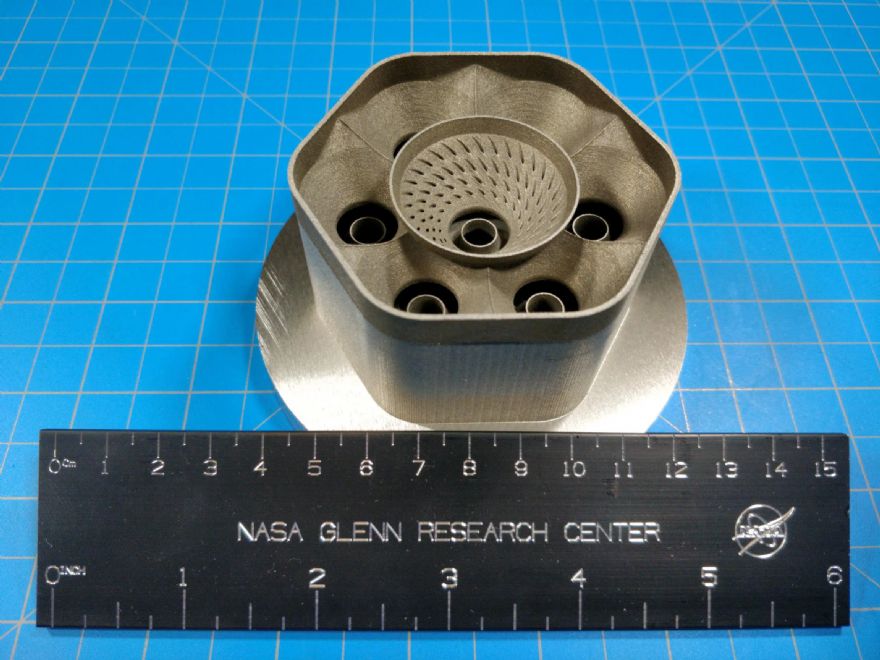
Historically, the 3-D printing of spaceflight engine components was limited by the lack of affordable metal alloys that could withstand the extreme temperatures of space applications; and while costly metal alloys were the only option for 3-D printing engine parts,
NASA’s Glenn Research Centre in Cleveland, Ohio, is now offering its GRX-810 alloy.
The primary metals in this alloy include nickel, cobalt, and chromium. A ceramic oxide coating on the powdered metal particles increases its heat resistance and improves performance. Known as oxide dispersion strengthened (ODS) alloys, these powders were challenging to manufacture at a reasonable cost when the project started, but a dispersion coating technique developed at Glenn employs resonant acoustic mixing, which sees rapid vibration applied to a container filled with the metal powder and nano-oxide particles. The vibration evenly coats each metal particle with the oxide, making them inseparable. Even if a manufactured part is ground down to powder and reused, the next component will have the qualities of ODS.
Complex shapesThe benefits offered by GRX-10 over common alloys are significant, offering the ability to last up to a year at 2,000°F under stress loads that would crack any other affordable alloy within hours. Moreover, 3-D printing parts using GRX-810 enables more complex shapes to be achieved compared to metal parts manufactured with ‘traditional methods’.
Elementum 3D, an Erie, Colorado-based company that makes GRX-810 for customers in quantities ranging from small batches to those of over a tonne, has a co-exclusive licence for the NASA-patented alloy and manufacturing process and continues to work with the agency under a Space Act Agreement to improve the material.
Jeremy Iten, Elementum 3D’s chief technical officer, said: “A material under stress or a heavy load at high temperature can start to deform and stretch almost like toffee. Initial tests done on the large-scale production of our GRX-810 alloy showed a lifespan that’s twice as long as the small-batch material initially produced, and those were already fantastic.”